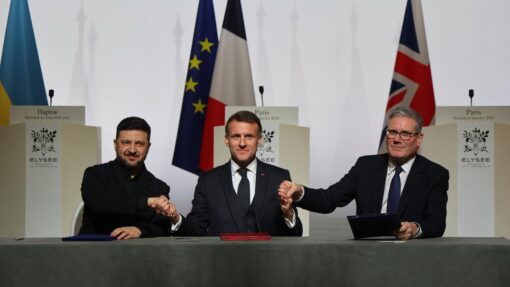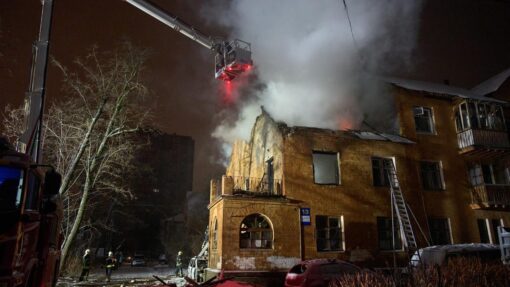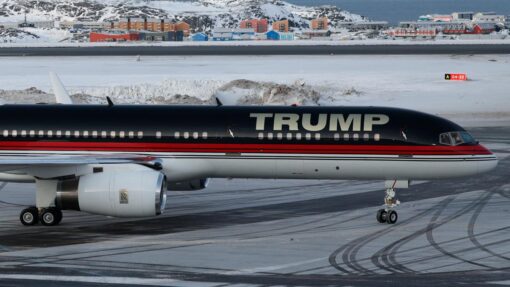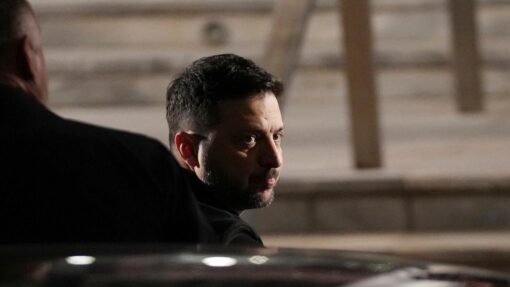Security committee to finalise Ukraine aid
Andrew Brown and Maeve Bannister |
Federal cabinet’s national security committee will meet on Tuesday to finalise what lethal military equipment Australia will provide to Ukraine.
Prime Minister Scott Morrison said assistance given to Ukraine following the Russian invasion would be stepped up to include lethal aid, in line with support from other western nations.
The national security committee will receive reports on what lethal aid can be provided, following planning over the past day.
But Mr Morrison says national security considerations may prevent him from publicly disclosing what lethal aid Australia would be involved with sending.
“I don’t want to flag there is … a list of what we may provide,” he told reporters in Brisbane on Monday.
“We’ll consider that as we work through those issues, but the lethal aid support sees a step up again, together with the rest of the world.”
The head of the Ukrainian embassy in Canberra says help from the west – including lethal aid from Australia – will make a huge difference in the country’s ability to counter Russian firepower.
Charge d”Affaires Volodymyr Shalkivskyi said initial missile strikes from Russia destroyed a significant amount of Ukraine’s military infrastructure.
“That is why it is crucial for us to have reliable support,” Mr Shalkivskyi said.
“Thanks to the international community, our partners, we are confident that we will not run out of bullets and weapons to defend our country.”
Parliament House in Canberra will be lit up with the colours of the Ukrainian flag for three nights starting on Monday in solidarity with the country’s people and government.
Australia has already pledged $4 million in military assistance that will go to NATO’s Trust Fund for Ukraine to support non-lethal military equipment and medical supplies.
“The Ukrainian people have shown tremendous strength and tremendous resolve, but the situation remains terribly concerning,” Mr Morrison said.
“I am pleased that we’ve seen an accelerating and increasingly strengthened response from western democracies in standing up against what is thuggish brutality.”
The federal government has also updated its travel advice to Russia, urging Australians not to go to the country and for citizens to leave as soon as possible.
The prime minister urged Ukrainians in Australia not to fly to Ukraine to fight in the conflict.
“I can understand, absolutely, the strong feelings and the motivations for people to go and do that,” Mr Morrison said.
“At this time, the legality of such actions are uncertain under Australian law.”
Mr Shalkivskyi said around 20 people interested in fighting overseas had contacted the Ukrainian embassy in the first few hours but says while the support is welcome, Australians should abide by the law.
“We appreciate such willingness from the Australian people to help Ukraine to defend our country,” he said.
“(But) we believe that there are different ways to support our military and different in order to protect our civilians – provide financial assistance, humanitarian aid.”
Australian-targeted financial sanctions and travel bans on Russian President Vladimir Putin and members of Russia’s Security Council came into effect at midnight on Sunday.
Australia is also working with partners in Europe on what further measures may be deployed against Russia.
The European Union’s Ambassador to Australia, Michael Pulch, said Russia had violated one of the fundamental laws of international order – that of territorial integrity and sovereignty.
“We are working here with all our partners, we are working here with Australia as well, to ensure that there will be a very, very strong signal given by the international community,” he told Sky News.
Mr Putin has ordered his military command to put nuclear-armed forces on high alert as Ukrainian fighters defending the city of Kharkiv said they had repelled an attack by invading Russian troops.
It comes as a meeting is due to be held between Ukrainian and Russian officials at the Belarusian-Ukrainian border.
AAP


